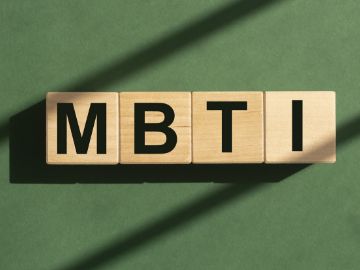How to Shift Your Thinking for a Job Search

Job hunting is a breeze! Said no one, ever. If you've ever searched for a job and felt overwhelmed and hopeless, you're not alone. A job search is a complex journey that requires preparation, organization, and most importantly, a positive mindset. Often, your job search journey will become a part-time (if not full-time) job in itself. It can be difficult to know how to get this job done without feeling defeated, so it's important to know how to shift your thinking when hope is fading.
Positive Mindsets are Crucial for Job Search Preparation
Maintaining a positive mindset when searching for a new job is critical. I often remind myself of this quote before social and work engagements: "Your energy introduces you before you even speak." Shift your negative thoughts into positive ones, and you will not only aid the job search preparation, but your attitude will translate to a recruiter looking for someone confident in their abilities. Now how does one actually shift their mindset?
If you're out of work, the time spent looking for a job will no doubt be stressful. According to the Bureau of Labor Statistics, it takes on average five to six months to find a job. Throughout this process, you're going to feel disappointed, frustrated, rejected, and after a while, desperate. But as Franklin Roosevelt once said, "When you reach the end of your rope, tie a knot and hang on." Instead of reinforcing your reality with negative mindsets about not having a job or being hired, dig deep, and find your strengths and skills. Remember that all your existing skills are qualities worth praising yourself for!
If you're already employed but are looking to shift, don't let your excitement for a new job bring your mood about the current one down. I know it sometimes feels like you 'just can't wait to leave', but you've stuck it out this far; you can persist a while longer. Doing your existing job poorly will lead to disappointment either from your boss, or even yourself, and this will translate in interviews and cover letters.
Whether you're out of work or you're looking for a change, stay positive, be confident, and congratulate yourself whenever you have small wins. A phone interview is an achievement! A new LinkedIn connection is network growth! These are things worth spending your energy on.
Job Search Preparation Means Making Valuable Connections
Networking is a vital tool in the job search process. As the saying goes, it's not about what you know but who you know. Applying for job listings is a great start, but it's simply not enough these days. Comment on that LinkedIn network's post, attend job fairs, go for a coffee with an old colleague. Each of these interactions opens the door to a possible opportunity. Everyone has either been in the same position before or will be in the future, so you will be understood.
Cover Letters are Crucial for Any Job Search
One of the key efforts in your job search should be your cover letters. These will function as your source of empowerment. You do not have to skip applying for the job you have your eye on just because it asks for five years of experience when you only have three. This is a common mistake made by applicants. You have a personal marketing tool up your sleeve that you should not forget - your cover letter. Use it to paint a picture of your experiences and transferable skills to show why your fitness for a job. Humble bragging is acceptable.
Let's talk about how to identify your transferable skills. Are you a critical thinker? Then you have analysis, interpretation, open-mindedness, and problem-solving skills. Confident leader? You've got communication and relationship-building skills. Companies are looking for interpersonal skills more and more. Make a physical list so you can refer to them with each resume and cover letter. Take what you have and find the best way to phrase it depending on the job description.
Rejection Comes with the Job Search Territory
What do you perceive as rejection? We arrive at the perception versus reality conundrum. What if what you perceive as rejection today becomes the redirection you didn't know you needed? Rejection comes with the territory. Just because you have the skills the company listed does not guarantee a successful application. Nobody knows what's going on behind the scenes. Perhaps the company had sudden budget cuts. Maybe there was a shift in strategy. Ask for feedback, review your interview responses, and move on.
The final note on how to shift your thinking throughout this process is to adjust your expectations. Do not limit your application field. Sometimes you'll need to take a step back or sideways to eventually reach your goal. This doesn't mean you have to settle for something that you're completely unhappy with but realize that a related career can be just as beneficial to your skill-set development.
In Summary
Finding a job doesn't have to be a completely miserable process. Be compassionate with yourself, if you truly feel like you're doing the best you can then tell yourself 'I'm doing the best I can.' Positive affirmations will drive your confidence. The job hunt will be exhausting, but a shift in thinking will make it easier.



